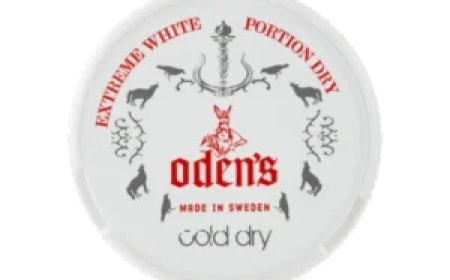Why Preventive Truck Maintenance Is a Must, Not an Option
You don’t wait until your reefer unit gives out in the middle of a frozen load or until a driver calls in from the side of I-40 saying, “I’ve got zero air pressure.” Still, when the daily grind hits calls from brokers, late loads, and driver issues.
You dont wait until your reefer unit gives out in the middle of a frozen load or until a driver calls in from the side of I-40 saying, Ive got zero air pressure. Still, when the daily grind hits calls from brokers, late loads, and driver issues, its easy to push scheduled maintenance down the list. But lets be real: skipping truck preventive maintenance is like gambling with your uptime, your DOT record, and your bottom line.
Preventive maintenance isnt some extra add-on for big fleets with deep pockets. Its a core survival strategy for owner-operators and midsize fleets trying to stay competitive, control fuel costs, and keep their drivers rolling without breakdowns or compliance nightmares.
Lets break down exactly why truck preventive maintenance should be locked into your operation, whether youre running five trucks or fifty.
1. Breakdowns Cost More Than Just the Repair
You already know that a roadside breakdown isn't just about parts and labor. Its missed loads, lost hours, driver frustration, tow fees, and scrambling to find coverage. An upgraded sensor that costs $300 may become a nightmare of $2,000 as soon as it fails when the client is on the road.
In preventive maintenance of the truck, you will be able to detect these problems before they can cause a wrench in your day. You do not just need to fix what is broken; you also need to prevent the mess that ensues thereafter.
One small fleet out of Joliet started tracking belt and hose replacements every 60K miles instead of waiting for failures. Result: zero on-road cooling system issues for nine months straight. Less downtime. Happier customers. Fewer Wheres my load? calls.
2. DOT Inspectors Love a Clean, Maintained Truck
Lets face it, DOT doesnt play games. Loose U-bolts, bad brake chambers, cracked windshields, worn tires, these are all things that get spotted during random inspections. And every CSA point chips away at your reputation with brokers and shippers.
Scheduled truck preventive maintenance helps you avoid those surprise violations. A good mechanic will check lighting, air systems, steering, and suspension, everything that makes you a low-risk target instead of an inspection magnet.
If youve ever had to explain to a customer why their delivery is late because of a routine DOT hold, you know how painful this one can be.
3. It Keeps Your Fuel Costs in Check
One of the largest contributors to your operating expenses is fuel. Your MPG could be dead before you ever realize it had black and blue tires, a misaligned air filter, or a dragging brake. The minor mechanical wastes incur large expenses in the long term.
It is not that much about keeping the truck and being able to run it, but it is about being able to keep it running efficiently.
Simple tire pressure, wheel alignment, DPF systems, and injector inspections can make your mileage increase a bit to save thousands during the year. And when you are running on thin margins (which is most of us), every penny matters.
4. Your Drivers Stay Happier and Longer
Lets not sugarcoat it: driver turnover eats away at your business. And no driver wants to be stuck in a truck thats breaking down or riding roughshod. AC issues in July or faulty heaters in January are fast-track tickets to losing good drivers.
With the preventive maintenance, the cab will be comfortable, the ride smooth, and your drivers will still feel comfortable with their equipment. Better still, it makes them understand you are concerned about their security and comfort. The latter helps quite a bit in the retention, particularly with good drivers who can choose a great number of alternative options.
5. You Gain Predictability in Cash Flow and Scheduling
Not only do emergency repairs blow your maintenance budget to hell, but they mess up your scheduling and planning. When you are aware of what is going to take place in the maintenance, you can budget and plan for it. However, when something does go wrong with no prior warning, it messes up everything.
A steady truck preventive maintenance routine gives you better control over downtime. You schedule trucks out of rotation instead of pulling them unexpectedly. That means better use of your team, fewer rush orders, and less scrambling to cover missed loads.
6. Helps Small and Mid-Sized Fleets Compete with the Big Guys
Come on, when it comes to volume discounts, back office automation, and dedicated service bays, the bigger fleets have it made. However, it does not imply that you are not able to compete. By remaining keen with truck preventive maintenance, you can experience fewer breakdowns, smaller delivery windows, and regular delivery, which the customers are concerned about a great deal more than the size of your fleet.
When your trucks appear clean, on time, and with zero issues, you can leave bigger-box retailers that act slower and sloppier in the dust.
7. Your Shop or Mobile Tech Partner Becomes a True Ally
Whether youve got an in-house shop or lean on a mobile tech crew, a consistent PM routine builds familiarity. Your techs start learning your trucks and catching issues faster. They know the age of your tires, the quirks in your suspensions, and what parts are nearing failure. That knowledge turns into faster turnarounds and fewer surprise failures.
You dont need the fanciest shop or the most high-end diagnostic tools. You just need someone who knows your trucks, follows a consistent checklist, and helps you stay one step ahead.
8. You Dont Need a Fancy TMS to Stay on Top of It
Plenty of Logistics Hustlers still run operations from a whiteboard, a few spreadsheets, and QuickBooks. You dont need a $100K fleet management system to schedule preventive maintenance.
Just track basic PM intervals (miles, hours, or time-based), post a simple checklist in the shop or office, and have a reminder system, text alerts, Google Calendar, or even a laminated chart stuck to the fridge. The point is consistency, not complexity.
Final Word: Pay a Little Now or a Lot Later
Preventive maintenance isnt optional. Its the difference between running your business and reacting to it. Between stable cash flow and unexpected bills. Between keeping your best driver or watching him walk.
Youve got enough to handle fuel spikes, freight rates, driver issues, and customer demands. Dont let something as avoidable as a failed water pump or seized brake chamber bring your whole operation to a halt.
Lock truck preventive maintenance into your monthly plan. Find a tech partner you trust. And treat your equipment like its the core of your business because it is.







































